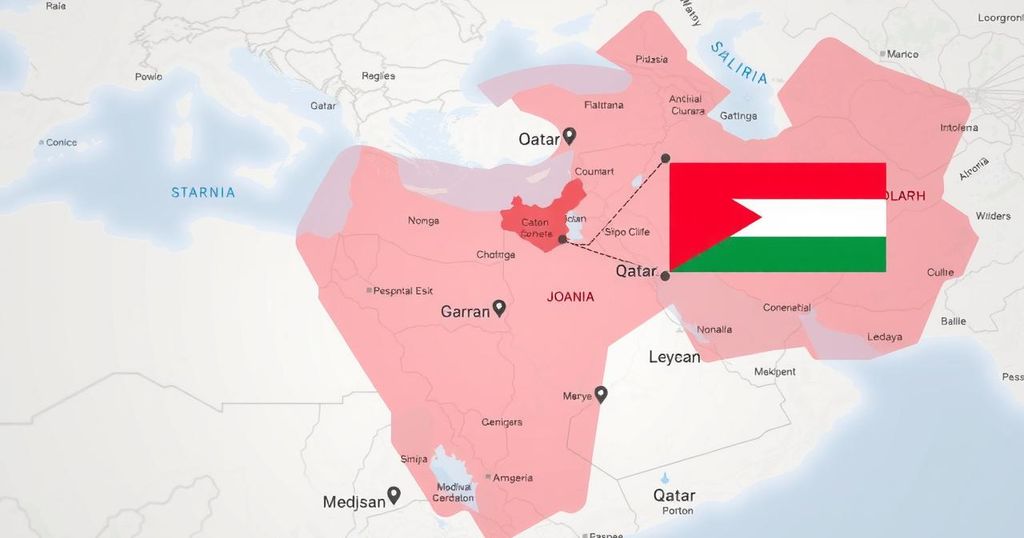Qatar and Jordan Denounce Israel’s Controversial Territorial Claims

Israel’s controversial map claiming historical territories has drawn strong condemnation from Qatar and Jordan, with both nations criticizing the potential impact on regional peace. The map, asserting claims over parts of Jordan, Lebanon, and Syria, contradicts international law and threatens Palestinian statehood aspirations. This incident underscores the ongoing complexities in Middle Eastern geopolitics, marked by Israel’s historical territorial disputes and occupation.
A contentious map released by the Israeli government has ignited widespread condemnation from Qatar and Jordan, intensifying existing tensions within the region. The map, promoted via social media by the Israeli Foreign Ministry, asserts historical territorial claims extending beyond modern Israel into substantial portions of Jordan, Lebanon, and Syria, purportedly reflecting biblical boundaries of ancient kingdoms. This provocation has raised alarm over its potential impact on peace efforts amid ongoing conflict, particularly in Gaza.
Qatar’s Foreign Ministry expressed strong disapproval, labeling the published maps as a “flagrant violation of international legitimacy resolutions and the provisions of international law.” They warned that such actions could undermine peace prospects in the region, urging the international community to hold Israel accountable for its actions. Meanwhile, Jordan’s Ministry emphasized the detrimental implications for Palestinian aspirations for an independent state, condemning the map as a denial of their rights. The Jordanian spokesperson underscored that these provocative actions do not weaken Jordan nor diminish the legitimate rights of the Palestinian people, insisting they represent a severe breach of international norms.
In a broader context, concerns over Israel’s territorial claims have persisted, especially given the country’s historical military occupation of various territories including parts of Lebanon, Palestine, and Syria. Observers note a consistent resistance from Israel to the establishment of a recognized Palestinian state, particularly one with East Jerusalem as its capital, highlighting the difficulty of achieving reconciliation under current circumstances.
The local and international backlash emphasizes the need for sustainable dialogue and adherence to international law to resolve the longstanding Arab-Israeli conflict. The situation remains precarious, particularly as the international community grapples with addressing the complexities of historical grievances and current geopolitical realities.
The recent uproar surrounding Israel’s publication of a map claiming historical rights can be traced back to decades of conflict between Israel and its Arab neighbors, particularly surrounding the Palestinian territories. The map’s release came during heightened military tensions, especially in Gaza, and appears to challenge international legal agreements that advocate for a two-state solution, based on the pre-1967 war borders. This geopolitical landscape is marked by a longstanding history of territorial disputes, claims to legitimacy, and conflicting national narratives, which complicate efforts towards peace and reconciliation in the region.
In conclusion, the Israeli map claiming historical territories has elicited strong reactions from both Qatar and Jordan, who view the claims as damaging to peace efforts and direct violations of international law. As tensions continue to escalate across the region, the dialogue surrounding these disputes emphasizes the urgent need for accountability and a renewed commitment to resolving the Israeli-Palestinian conflict through recognized international frameworks. The sentiments articulated by the ministries in Qatar and Jordan reflect longstanding concerns regarding territorial integrity and the rights of the Palestinian people, echoing the need for sustainable diplomatic solutions.
Original Source: www.palestinechronicle.com








